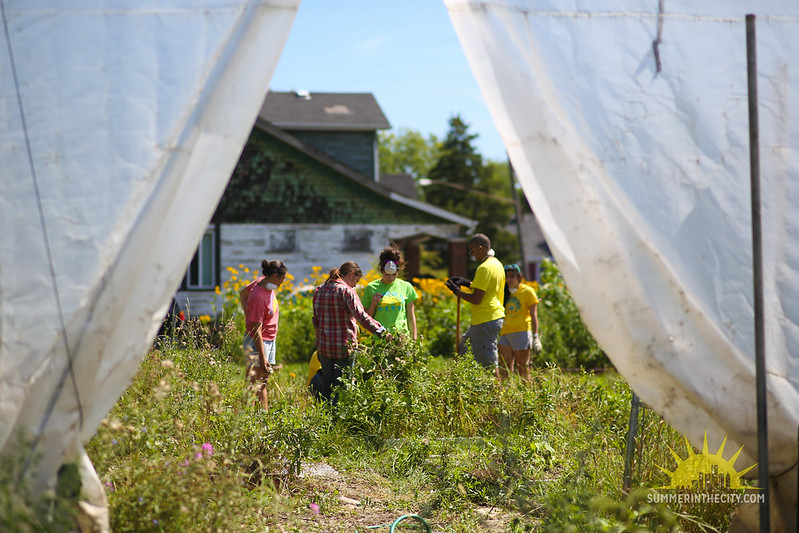Conclusion

We hope this resource inspires the passion, creativity, and determination of the many, many healthy food advocates who are working tirelessly to transform community food systems to achieve a world where everyone can get and eat all the good food they need and want. We also hope it encourages reflection, supports wider understanding, and motivates discussion on the frameworks and terms provided, particularly regarding how they are used in policy. Using certain terms in policy may have broad implications especially at the federal level, and they can have a significant impact over a long period of time. Even if the term is ultimately understood to be problematic, it may take a long time to transition away from its use. It is therefore crucial to engage authentically with the community when choosing terms to use in public policy to ensure terms are appropriate and community driven, not rooted in deficit and covering up systemic inequities.
Acknowledgements
This resource was developed by the Healthy Food Policy Project team, including the Public Health Law Center, the Center for Agriculture and Food Systems, and the Rudd Center for Food Policy and Health. It was informed by many hours of research, discussion, and heated debate. We especially thank the members of the Healthy Food Policy Project Advisory Committee who shared their deep wisdom and experience to help make this a better resource: Reverend Dr. Heber Brown, III, with the Black Church Food Security Network, Renee Gross with Kaiser Permanente, Lauren Lowery with the Housing and Community Development at National League of Cities, Anne Palmer with the Johns Hopkins Center for a Livable Future, Dr. David Procter with the Rural Grocery Initiative at Kansas State University, and Kathryn Lynch Underwood with the Detroit City Planning Commission. We also extend our gratitude to Daanis Chosa, Prevention and Policy Project Manager for the American Indian Cancer Foundation (AICAF) for her insightful feedback on this resource.


